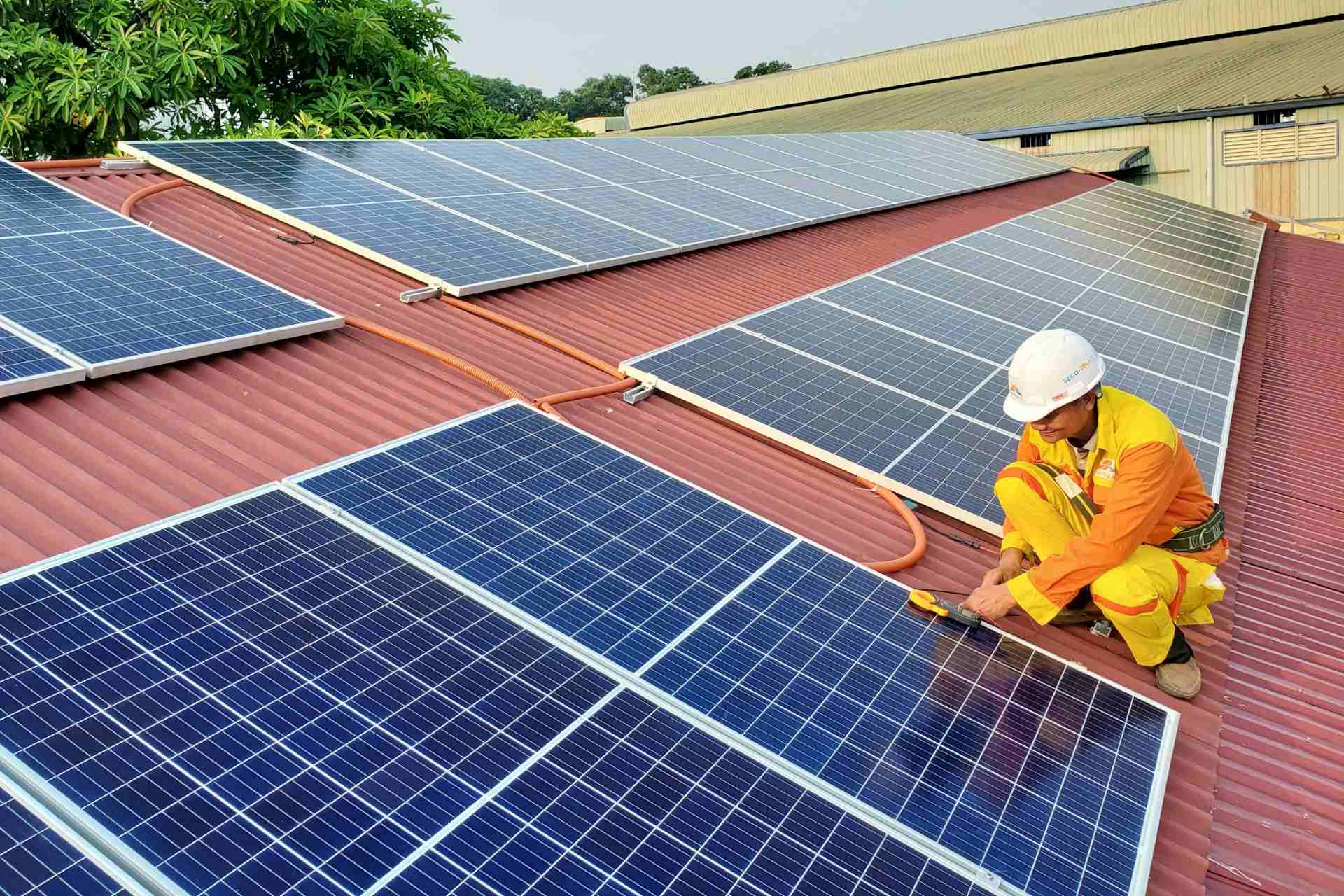In spring 2023 the government established a Solar Taskforce designed to boost the UK’s solar capacity. What is it doing and what are the possible implications for business?
Ambitious target: 70GW
The Solar Taskforce was created in service of a goal: the target of achieving 70GW of solar energy capacity by 2035. This was stated in April 2022’s Energy Security Strategy and repeated in March 2023’s Powering Up Britain document. At the time of publishing the Energy Security Strategy, total solar capacity was 14GW, so this represents a fivefold increase. If achieved, it could be enough to power over 20 million homes.
In setting up a taskforce dedicated to the big solar boost, the government is taking a recommendation from Chris Skidmore’s Net Zero Review, published in January 2023. Achieving this big increase in solar capacity means action on multiple fronts. The taskforce has already identified broad areas of action, such as reducing delays in the planning system.
The huge potential of commercial sites
Maximising the efficiency of land use is one of the goals for the taskforce. On the ground, this means supporting solar that works alongside other functions, such as wind generation or agriculture.
Rooftop solar is one of the key areas to explore. While over a million UK homes already have solar panels and the Energy Security Strategy has pledged to make good use of public sector rooftops, we can’t achieve the ambitious target set without also accessing the potential of commercial buildings.
Discussion at the first meeting of the taskforce highlighted the fact that there are large areas of unused rooftop space on the UK’s offices, retail spaces, factories and warehouses. This means getting UK companies on board with the idea that solar panels are good for business.
Removing the barriers
Some of the other discussion at the first meeting centred around how to remove barriers to installing rooftop solar. This means finding ways to cut the upfront costs of installation and reduce bureaucratic obstacles.
Chris Hewett, co-chair of the taskforce, said: “Installing rooftop solar power, whether at residential or commercial scale, is one of the best investments available…I am delighted we now have industry leaders working directly with the government to resolve the stumbling blocks.”
Future incentives?
The taskforce clearly recognises that businesses need support to become part of the rooftop solar revolution. In future, this might mean financial support with the initial costs of installation, or perhaps extra financial incentives for selling solar energy to the grid. We have yet to see how the taskforce will work towards its goals, but it seems likely that solar will become a more attractive option for many businesses. The Energy Advice Hub will bring you details of any schemes or incentives as they emerge.













